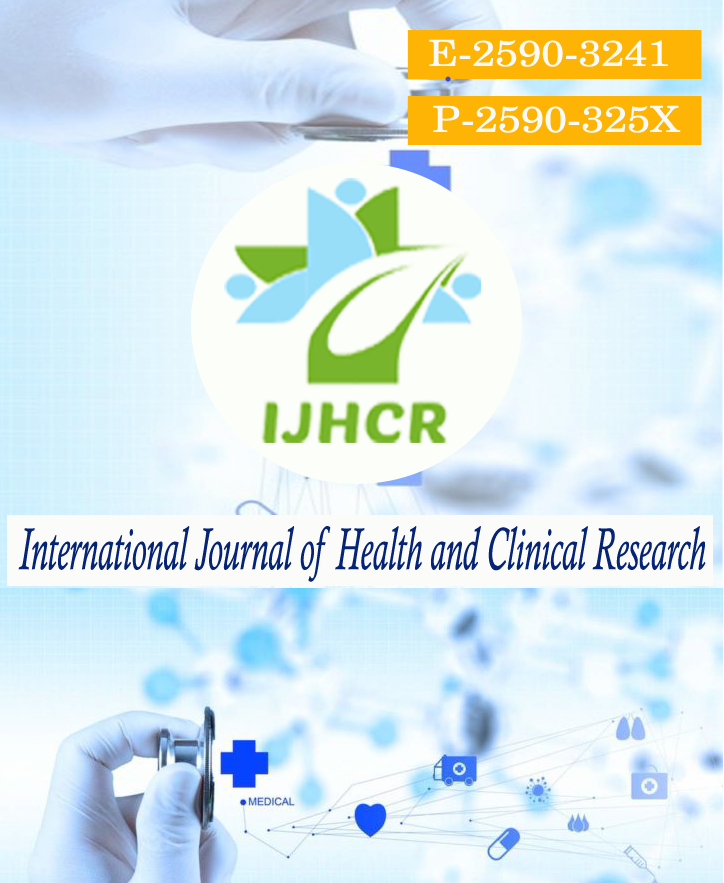
International Journal of Health and Clinical Research
Yazarlar: Gbankoto Mamatou, Gbaguidi Ahotondji Bertin, Dotché Ogoudanan Ignace, Biaou Olivier, Akpovi Dêwanou Casimir, Youssao Abdou Karim Issaka
Konular:-
Anahtar Kelimeler:Counterfeit petrol,Pathology,Age,Benin
Özet: Background: Counterfeit fuel is sold in Benin by all socio-demographic groups with serious health consequences. The aim of this study was to assess differences in health consequences associated with exposure to petrol based on the age of vendors. Material & Methods: Data was collected by interviewing 150 petrol vendors in the municipality of Abomey-Calavi and analyzed with emphasis on comparison between age groups using the two-tailed Z test. Results: The present study shows that the proportion of vendors aged 20 to 30 working more than 8 hours per day (27.03%) was significantly higher (p˂0.05) than those under 20, and over 40. Incidents like inhaling and swallowing petrol was more reported (p˂0.05) in vendors aged 20 to 30 than those under 20 and over 40 years old. The respondents, especially those aged 30 to 40, do not protect themselves sufficiently and experience many health problems. The vendors aged 20 to 30 years who experienced headache, dizziness, cough, fatigue, sleepiness, nausea, vomiting and eye irritation was higher (p˂0.05) than those under 20 and over 50. Likewise, the proportion of people aged 20 to 50 years who presented symptoms such as stuffed nose, pressing need to expectorate upon awakening and episodes of rhinorrhea was higher (p˂0.05) than in those under 20 and over 50. Conclusion: In conclusion, people aged 20 to 30 experience more health consequences associated with the sale of counterfeit petrol and must take necessary measures for their protection.